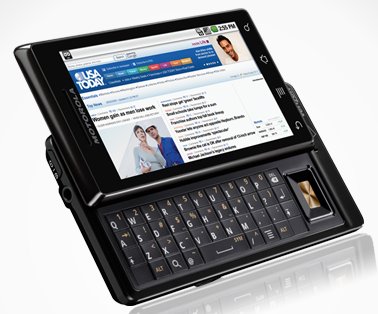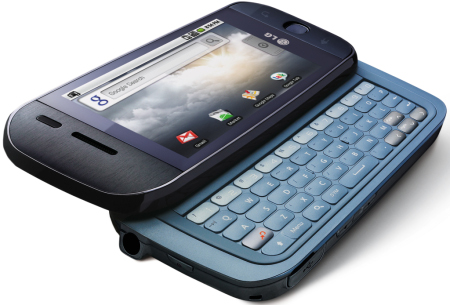ARM’s Android center focuses on Cortex-A8
Nov 18, 2009 — by Eric Brown — from the LinuxDevices Archive — viewsARM has launched an Android development center, and has already signed up 35 members of its “ARM Connected Community.” The Solution Center for Android offers resources for designers and developers of ARM technology-based products running on Android, with a focus on Cortex-A8 cores, says ARM.
The Solution Center for Android has a goal of fostering "an innovative ecosystem to ensure that device manufacturers have the best development solutions at their disposal," says ARM. As the company notes, Android first launched on an ARM platform, the 528MHz Qualcomm MSM7201A processor, which appeared in the original HTC G1 phone.
On its new Solution Center home page, ARM also lists the Archos 5 Internet Tablet, HTC Hero, HTC Magic, SkyTone Alpha-680, and ZiiLabs Zii Egg as ARM-based devices that run Android. This far-from-complete list may indicate that the Center is currently offering special support for these platforms, as ARM cores have also been found in several other Android phones and devices. In fact, Android had pretty much been completely ARM-powered until the recent ports of Android by Embedded Alley (now part of new Solution Center member Mentor Graphics), which has ported the Linux- and Java-based mobile stack to MIPS and PowerPC architectures. Meanwhile, Acer has Android running on an Intel Atom-based netbook alongside Windows.

Verizon Wireless' Droid by Motorola
ARM notes that Android 2.0 works from a base assumption of a Cortex-A8 core, such as the Droid by Motorola's Texas Instruments OMAP3430 system-on-chip (SoC), or the Cortex-A8-like Scorpion core found in Qualcomm's Snapdragon. In its announcement, the company specifically cited the Droid (pictured above), as well as the Snapdragon-based Acer Liquid (expected to ship soon). LG's Eve (pictured below), which is offered by Rogers Wireless, also uses a Snapdragon processor.

Like the Acer Liquid, LG's Eve runs Android on a Qualcomm Snapdragon
- Cortex-A applications processors
- Cortex-R for baseband
- Cortex-M for peripheral features
- Mali graphics hardware
- Mali video engines
- Keil tools
The Solution Center for Android comprises 35 members, who will "provide development tools, solutions and services optimized specifically for Android on the ARM platform," says ARM. Members are said to include Acrodea, America Megatrends, Archos, Atelier, Beijing Farsight, CoWare, Datalight, Discretix Technologies, Embedded Artists AB, Enea, Haansoft, Incube Solutions, Ingenient Technologies, Intrinsyc Software, iWave Systems, Lauterbach, LSF Design, Mapusoft, Mentor Graphics, Mistrial Solution, Montavista, Movial, NECEL, Open Kernel Labs, Pathpartnertech, QSound, Symsource, SQLStar, Tata Elxsi, Texas Instruments, Thundersoft, Vayavya Labs, Viosoft, VirtualLogix, VisualOn, Wipro, and Zii Labs.
Stated Kevin Smith, VP Segment Marketing, ARM, "As we have seen through the recent launches of handsets such as Motorola's Droid and Acer's Liquid, the Android platform represents a fundamental change in the open source ecosystem. The Solution Center for Android serves as a one-stop guide to provide developers with the tools and information they need to create innovative devices with applications that satisfy consumers' needs."
Availability
ARM's Solution Center for Android is now open. More information may be found here.
This article was originally published on LinuxDevices.com and has been donated to the open source community by QuinStreet Inc. Please visit LinuxToday.com for up-to-date news and articles about Linux and open source.